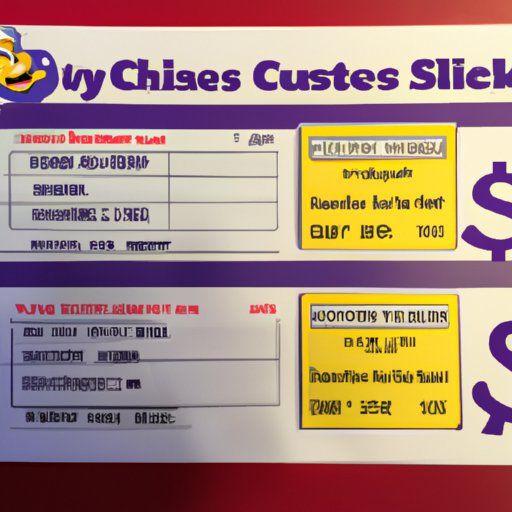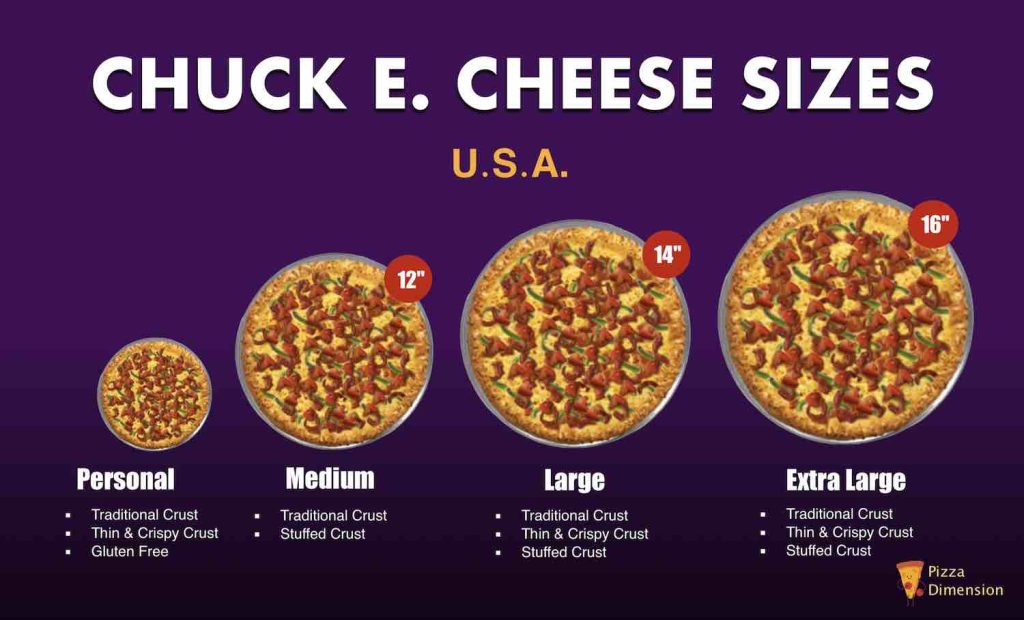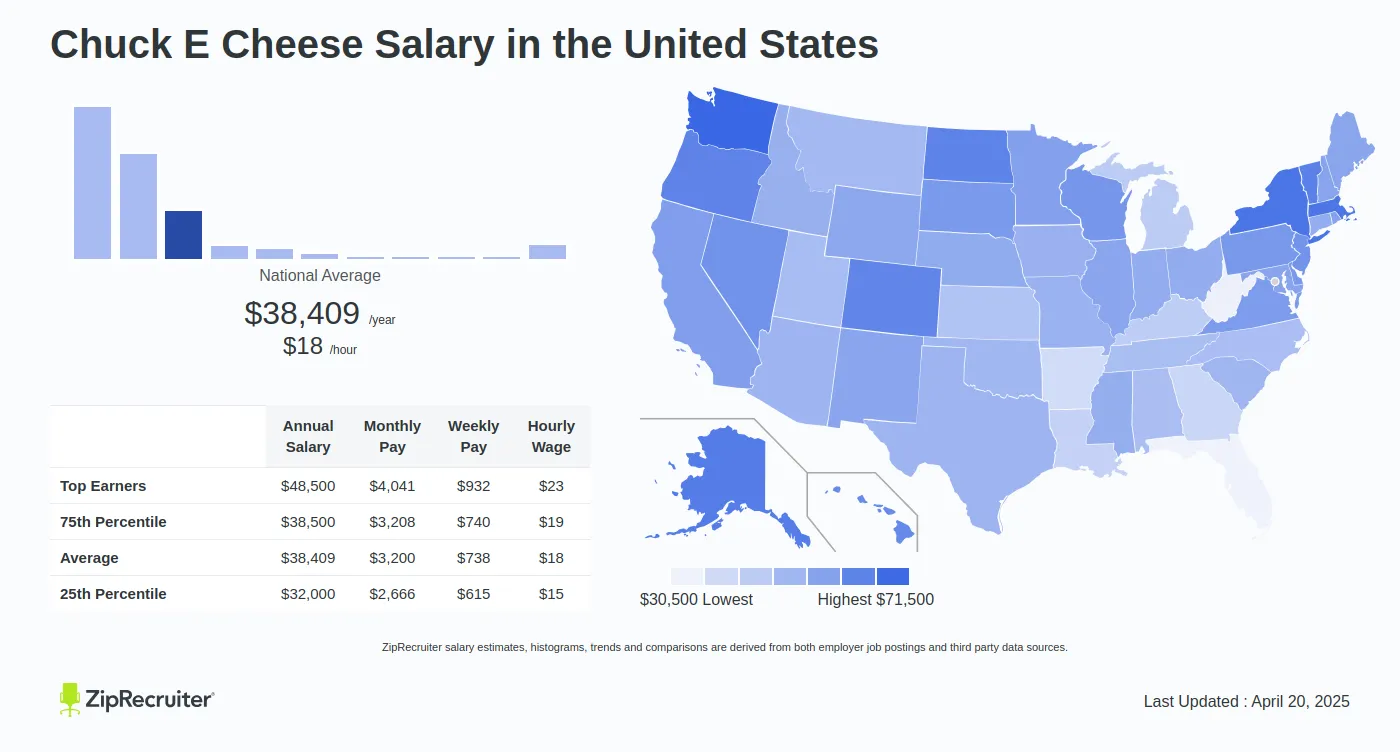How Much Do They Pay At Chuck E Cheese

Chuck E. Cheese, the iconic family entertainment center, is a familiar name to many, synonymous with pizza, games, and animatronic characters. As families navigate rising costs, a frequent question arises: how much do they pay their employees?
Understanding the pay scale at Chuck E. Cheese provides valuable insight into the service industry landscape and the earning potential for individuals seeking entry-level or part-time employment. This report delves into the average wages, factors influencing pay, and the overall compensation structure within the company.
Wage Variations and Averages
Determining a precise, universal wage for Chuck E. Cheese employees is challenging due to variations based on several factors. These include geographic location, specific role, experience level, and local minimum wage laws.
Data from sources like Indeed, Glassdoor, and ZipRecruiter paint a broad picture. These platforms aggregate self-reported salary data from employees, providing a range of estimates.
Entry-Level Positions
Entry-level roles, such as game room attendants, cashiers, and party hosts, typically command hourly rates close to the prevailing minimum wage in their respective states. These positions often serve as a starting point for individuals entering the workforce.
Reports suggest that hourly wages for these roles can range from $10 to $15 per hour, influenced significantly by state and local minimum wage requirements.
Management and Skilled Positions
Positions requiring specialized skills or managerial responsibilities naturally command higher pay. Shift managers, assistant managers, and technicians responsible for maintaining games and equipment fall into this category.
According to salary aggregators, shift managers can earn between $14 and $20 per hour, while assistant managers may see salaries ranging from $30,000 to $45,000 annually. Pay scales can vary based on experience and location.
Factors Influencing Pay
Several key factors contribute to the variability in pay rates across different Chuck E. Cheese locations and roles. Location plays a major role.
States with higher minimum wages or a higher cost of living generally offer higher wages to attract and retain employees. Experience and job duties also factor into employee pay.
Employees with prior experience in customer service, food service, or maintenance roles may be eligible for higher starting salaries. Also, employees with greater responsibilities will be paid more.
Benefits and Perks
Beyond hourly wages, Chuck E. Cheese offers a range of benefits and perks to its employees, which can enhance the overall compensation package. These benefits vary based on employment status (full-time or part-time) and tenure with the company.
Common benefits include employee discounts on food and games, flexible scheduling, and opportunities for advancement within the company. Some locations may also offer health insurance, paid time off, and 401(k) retirement plans to full-time employees.
Impact and Significance
The wages paid at Chuck E. Cheese and similar establishments are indicative of broader trends within the fast-food and entertainment industries. These trends reflect the ongoing debates surrounding minimum wage laws, living wages, and the value of entry-level work.
For individuals seeking employment, understanding the pay scale and benefits offered by companies like Chuck E. Cheese is crucial for making informed career decisions. It provides a realistic expectation of earning potential and helps job seekers assess the overall value of a particular position.
The compensation structure at Chuck E. Cheese highlights the complexities of wage determination in the service sector. While entry-level positions may offer lower hourly rates, they can serve as valuable stepping stones for individuals seeking to gain experience and advance their careers within the company or industry.


















